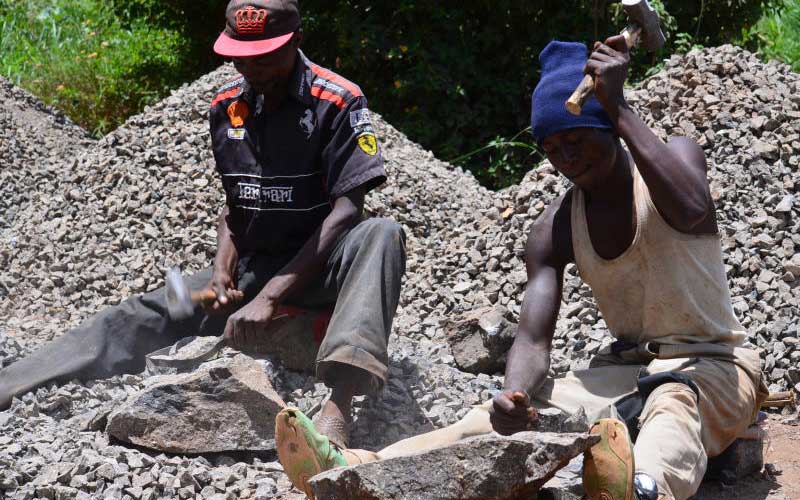×
The Standard e-Paper
Fearless, Trusted News

Andrew Kithinji and Martin Mwangi crush stones into ballast at a quarry where they earn Sh50 per wheelbarrow they fill. [File, Standard]
Policymakers have long been divided about the place of the informal sector in the country’s economy.